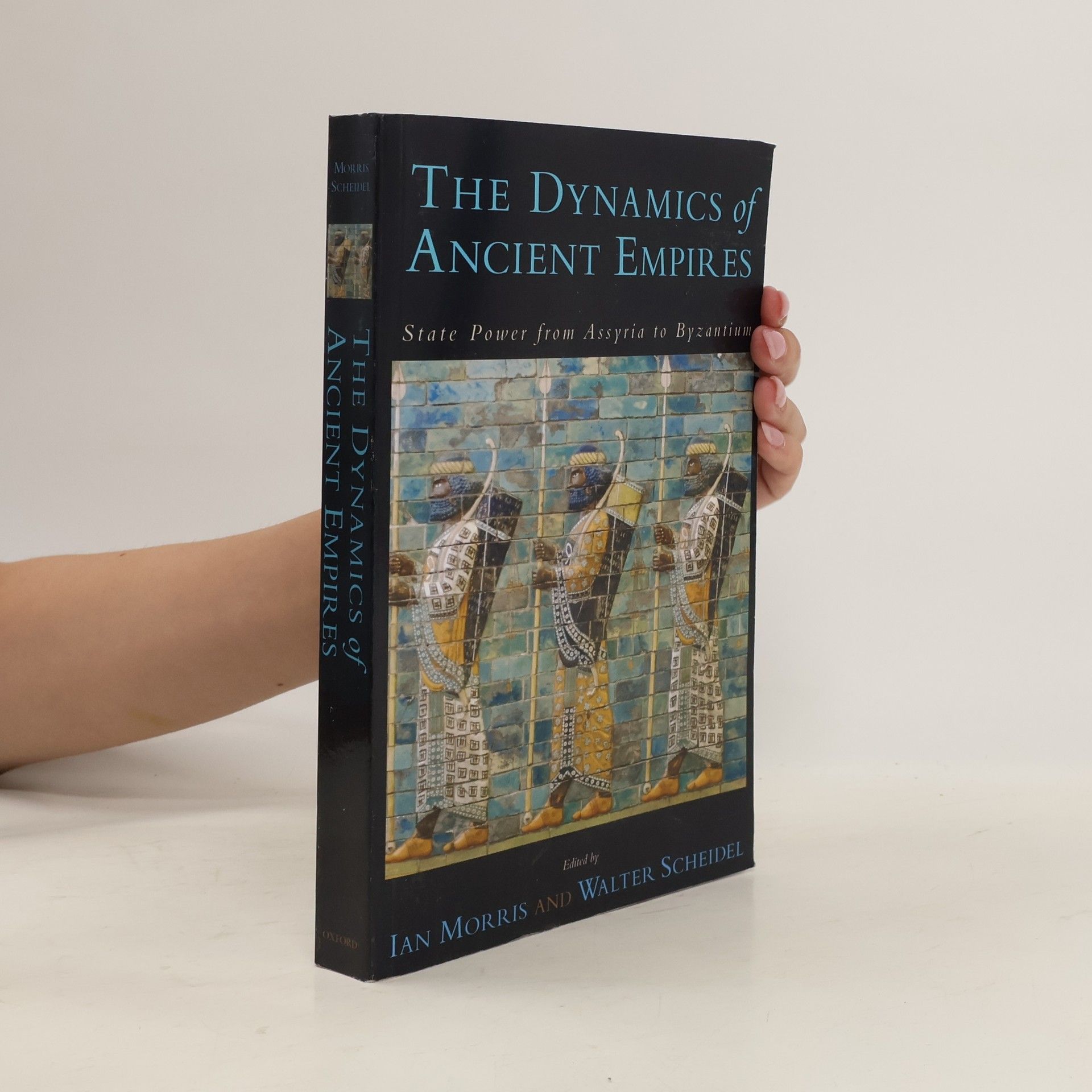"Greek and Roman empires have largely been studied in isolation from those of the Near East. This volume is designed to encourage dialogue across disciplinary boundaries by examining the fundamental features of the successive and partly overlapping imperial states that dominated much of the Near East and the Mediterranean in the first millennia BCE and CE."--Back cover.
Walter Scheidel Books
Walter Scheidel is a distinguished professor whose work bridges the humanities, social sciences, and life sciences. His extensive research delves into the social and economic history of premodern societies, historical demography, and comparative global history. He is particularly dedicated to exploring the historical dynamics of inequality, state formation, and human welfare across different cultures and eras. Scheidel's scholarship is characterized by its transdisciplinary approach, seeking to connect disparate fields of study.







Debating Roman demography
- 242 pages
- 9 hours of reading
In conjection with an extensive critical survey of recent advances and controversies in Roman demography, the four case-studies in this volume illustrate a variety of different approaches to the study of ancient population history. The contributions address a number of crucial issues in Roman demography from the evolution of the academic field to seasonal patterns of fertility, the number of Roman citizens, population pressure in the early Roman empire, and the end of classical urbanism in late antiquity. This is the first collaborative volume of its kind. It is designed to introduce ancient historians and classicists to demographic, comparative and interdisciplinary perspectives, and to situate and contextualize Roman population studies in the wider ambit of historical demography.
Rome and China
- 256 pages
- 9 hours of reading
This volume brings together experts in the history of the ancient Mediterranean and early China and presents a series of comparative case studies on clearly defined aspects of state formation in early eastern and western Eurasia, focusing on the process of initial developmental convergence.
Escape from Rome
- 680 pages
- 24 hours of reading
The fall of the Roman Empire has long been considered one of the greatest disasters in history. But in this groundbreaking book, Walter Scheidel argues that Rome's dramatic collapse was actually the best thing that ever happened, clearing the path for Europe's economic rise and the creation of the modern age. Ranging across the entire premodern world, 'Escape from Rome' offers new answers to some of the biggest questions in history: Why did the Roman Empire appear? Why did nothing like it ever return to Europe? And, above all, why did Europeans come to dominate the world? In an absorbing narrative that begins with ancient Rome but stretches far beyond it, from Byzantium to China and from Genghis Khan to Napoleon, Scheidel shows how the demise of Rome and the enduring failure of empire-building on European soil ensured competitive fragmentation between and within states.
The Great Leveler
- 504 pages
- 18 hours of reading
If you think you've heard it all about economic inequality, think again. Walter Scheidel's analysis of what really reduces inequality is provocative, but he makes the case with reason, evidence, and style. - Steven Pinker, author of The Better Angels of Our Nature: Why Violence Has Declined
The Science of Roman History
- 280 pages
- 10 hours of reading
The Science of Roman History is a very timely book. With state-of-the-art contributions by scholars who are leaders in their respective fields, it describes how the integration of natural and human archives is changing the entire historical enterprise. I highly recommend that all historians read this important contribution.--J. G. Manning, author of The Last Pharaohs
Ungleichheit wird immer mehr zu einem Problem – weltweit! Führende Wirtschaftswissenschaftler fordern Reformen, um den gesellschaftlichen Zusammenhalt zu sichern. Wie aber lässt sich soziale Gerechtigkeit erreichen? Der renommierte Stanford-Historiker und Altertumswissenschaftler Walter Scheidel untersucht die Ursachen für soziale Gegensätze über drei Jahrtausende und kommt zu dem eindeutigen Schluss: Eine friedliche Senkung der Ungleichheit gab es in der Geschichte bisher nicht! Einzig Kriege und Katastrophen führten zu einem sozialen Ausgleich. Walter Scheidel fordert damit natürlich nicht den Krieg als neues Mittel der Einkommenspolitik – aber er mahnt ein ernsthaftes Angehen der Probleme an und provoziert diejenigen, die hohe Erwartungen in neue Einkommens- und Bildungsprogramme nähren.
Walter Scheidel, die moderne Geschichtskomparatistik und Oswald Spengler
Reden anlässlich der Verleihung des Oswald-Spengler-Preises an Walter Scheidel 13. November 2020
- 162 pages
- 6 hours of reading
Jsou katastrofy a masově páchané násilí těmi jedinými silami světových dějin, které dokážou snížit nerovnost? Sledováním tisíce let trvajících dějin nerovnosti od doby kamenné až k dnešku Walter Scheidel dochází k závěru, že na tuto otázku musíme odpovědět kladně, nerovnost nikdy neustoupila mírumilovnou cestou. Oslabovala tehdy, když zavládlo krveprolití a pohroma, v časech klidu a míru se vrátila v plné síle. Od těch dob, kdy lidé začali obdělávat půdu, chovat hospodářská zvířata a předávat své úspory příštím generacím, stala se ekonomická nerovnost určujícím rysem naší civilizace. Krátkodobou rovnováhu dokázal vždy přinést až jeden ze čtyř jezdců apokalypsy: válečná masová mobilizace, násilná revoluce, zhroucení státu nebo epidemie moru. Zdá se, že dnes už jsme dokázali nad těmito jezdci vyhrát, což je dobrá zpráva. Současně to však před nás staví vážnou otázku ohledně ekonomicky rovnovážné budoucnosti.

